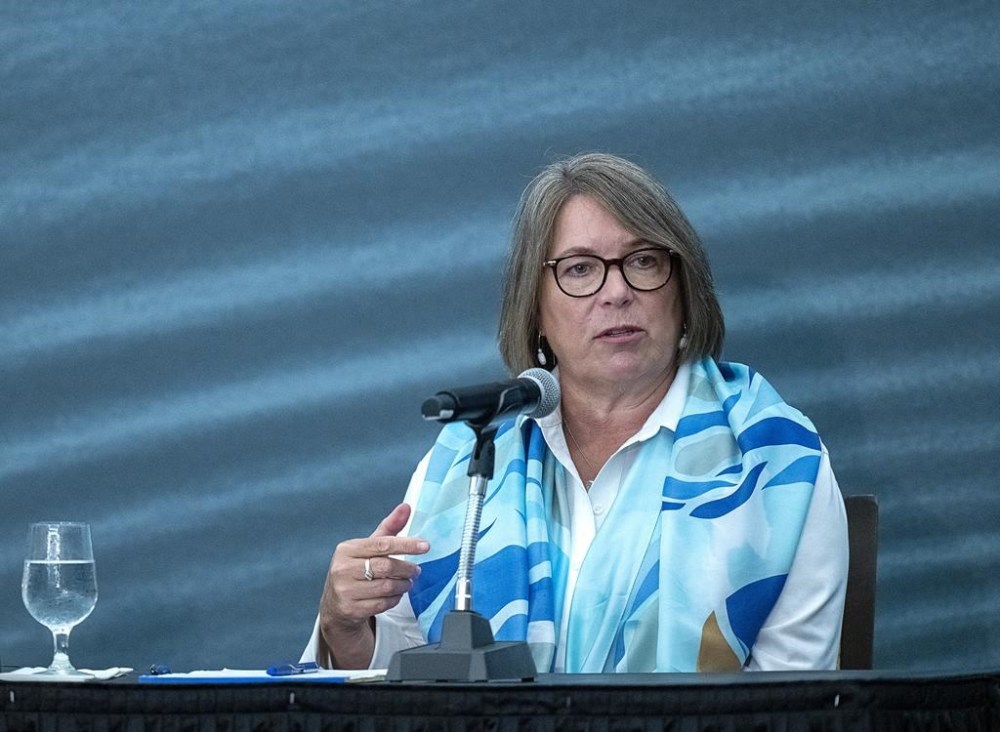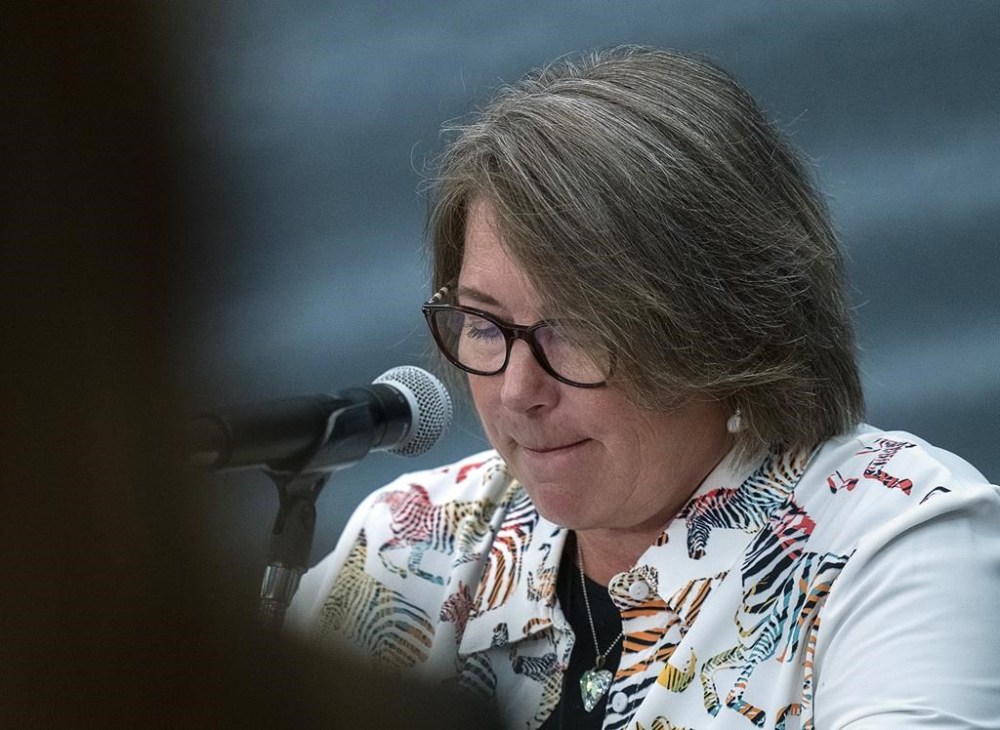‘I want to apologize for the RCMP,’ Commissioner Lucki tells N.S. shooting probe
Advertisement
Read this article for free:
or
Already have an account? Log in here »
To continue reading, please subscribe:
Monthly Digital Subscription
$19 $0 for the first 4 weeks*
- Enjoy unlimited reading on winnipegfreepress.com
- Read the E-Edition, our digital replica newspaper
- Access News Break, our award-winning app
- Play interactive puzzles
*No charge for four weeks then billed as $19 plus GST every four weeks. Offer only available to new and qualified returning subscribers. Cancel any time.
Read unlimited articles for free today:
or
Already have an account? Log in here »
Hey there, time traveller!
This article was published 23/08/2022 (854 days ago), so information in it may no longer be current.
HALIFAX – RCMP Commissioner Brenda Lucki apologized Wednesday for her force’s failure to meet public expectations during the 2020 Nova Scotia mass shooting, saying she hopes trust will return with time.
“I want to apologize for the RCMP, but in such a way that we weren’t what you expected us to be and I don’t think we were what you wanted us to be or what you needed us to be,” said the commissioner near the end of her second day of testimony at a public inquiry.
The public inquiry — known as the Mass Casualty Commission — is looking into how a 51-year-old denturist with a record of violence acquired a replica police vehicle, semi-automatic weapons and carried out 22 murders over 13 hours on April 18-19, 2020.

“I wish that we could have been more and we could have been different and we could have predicted and we could have had more hindsight .… But I still think that it (the shooting) was extremely heinous; I’ve never seen anything like this. I have 37 years of experience,” Lucki said.
The apology came at the end of a day when Lucki was repeatedly grilled by lawyers for victims’ families over the RCMP’s failure to swiftly implement reforms in the aftermath of the Nova Scotia killings and after previous reviews and inquiries tied to other tragedies.
Josh Bryson, a lawyer for the family of two victims, asked Lucki why the RCMP didn’t appear to have implemented recommendations from a Jan. 13, 2020, review into the Mounties’ investigation of the homicide of Colten Boushie, a 22-year-old from Red Pheasant First Nation in Saskatchewan, who was shot and killed on a rural farm near Biggar, Sask., in 2016. That review said major crimes investigators had a “delayed attendance” at the crime scene, and it called for investigators to attend crime scenes in a “timely fashion.”
Bryson noted that in the Nova Scotia shooting, police took more than 18 hours before they entered the home of Peter and Joy Bond, who were among the 13 people murdered in Portapique, N.S., on the first night of the rampage.
Lucki said Bryson raised “many, many good points,” and she speculated that the RCMP at times fails to properly communicate lessons learned from past cases to rank-and-file members.
“Did we properly communicate that (policy) to the people and to RCMP members? Maybe we didn’t. Maybe we have a responsibility to be better at communicating our policies,” she said.
Bryson responded, “You’re sitting here today, two years later, and you don’t know why the Bond home was unattended for 18 hours? And you haven’t delegated anyone to look into this, correct?”
“No, I haven’t,” Lucki responded.
The commissioner testified that it’s her job to see issues at the “10,000-foot level,” adding that she can’t micromanage the implementation of past policy reforms.
“I can’t be the one that goes down and makes sure everything happens .… The only thing I can do is go forward and say I have a commitment to you and I have a commitment to the families that we will look into … why this policy wasn’t followed,” she told Bryson.
Later on Wednesday, Jane Lenehan, who represents the family of victim Gina Goulet, said her clients believe the RCMP failed them “miserably” because the Goulet murder scene was left unsecure and unattended. In the weeks after the murders, the victim’s family found a bullet casing and a piece of lead in her house, Lenehan told Lucki.
Goulet’s daughter and son-in-law have said that the RCMP never formally notified them about Goulet’s death and didn’t inform them promptly where her body was taken.

Asked if these actions met the commissioner’s expectations, Lucki first apologized and went on to say, “Nobody would do that intentionally, but it doesn’t make it right.”
The commissioner said she’ll “be committed to any recommendations that we can implement out of this commission.”
Kelly McMillan, a lawyer for the union that represents rank-and-file members, asked Lucki to tell RCMP officers how their safety could be better protected.
“It’s pretty hard to talk about the good work that your members do when 22 people die and (there’s) a lot of criticism, and when you look back with hindsight there are things which we could have done better,” said the commissioner. However, she added, “I really want them to know I’m proud of each and every one of them.”
Near the end of the day, Lucki said the RCMP wants to remain in the province, though she also suggested that the Mounties may require more funding from provincial partners.
“I think before this incident, Nova Scotians had trust in their RCMP,” Lucki said. “I think they believed in their RCMP and this incident has shattered that trust for many. But my message is I hope that one day in your heart you can find yourself to find some trust. I know it’s not going to be easy. It’s something that we have to earn; it’s not something that we have and hold forever.”
This report by The Canadian Press was first published Aug. 24, 2022.
— With files from Lyndsay Armstrong in Halifax.


